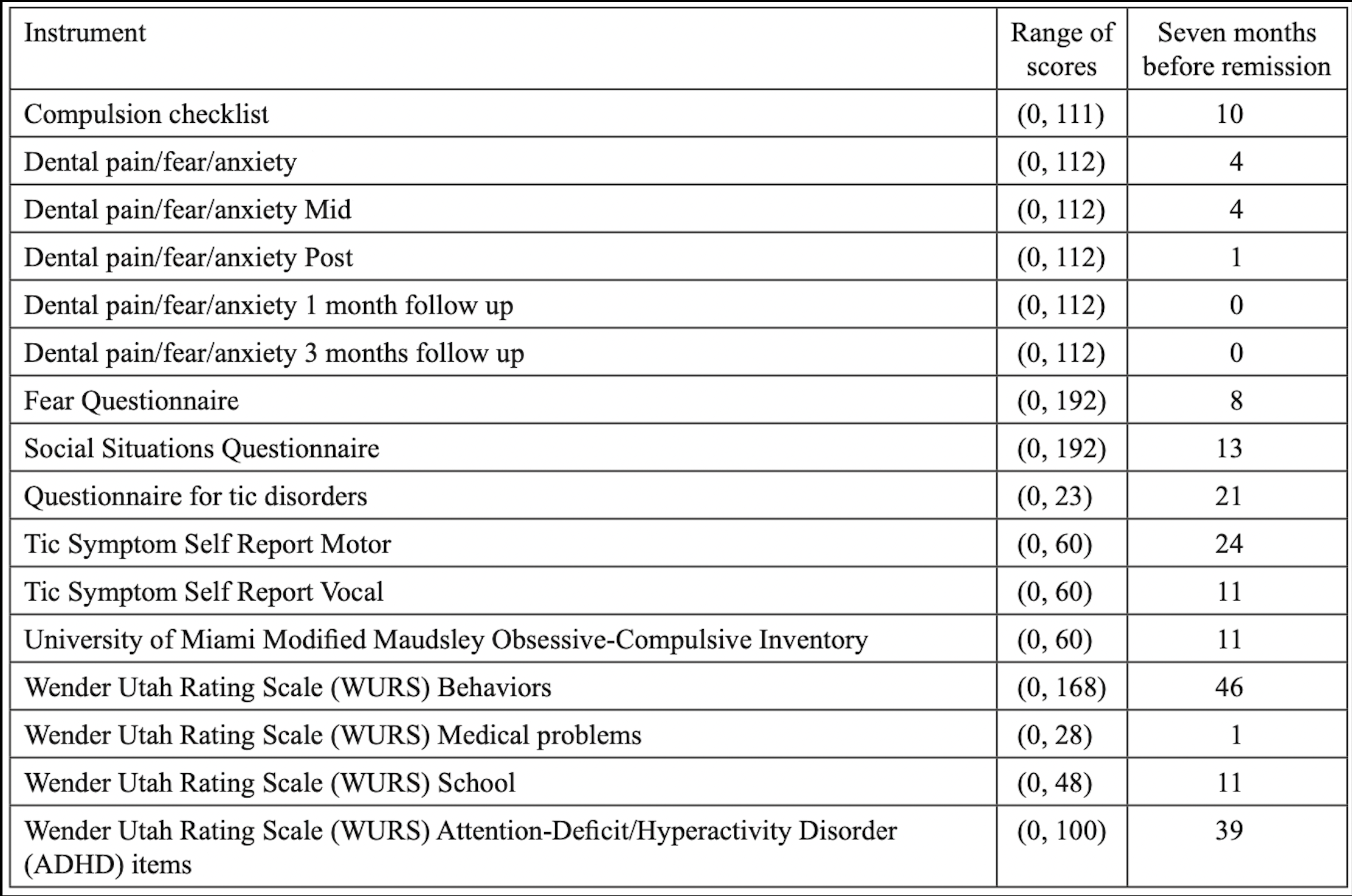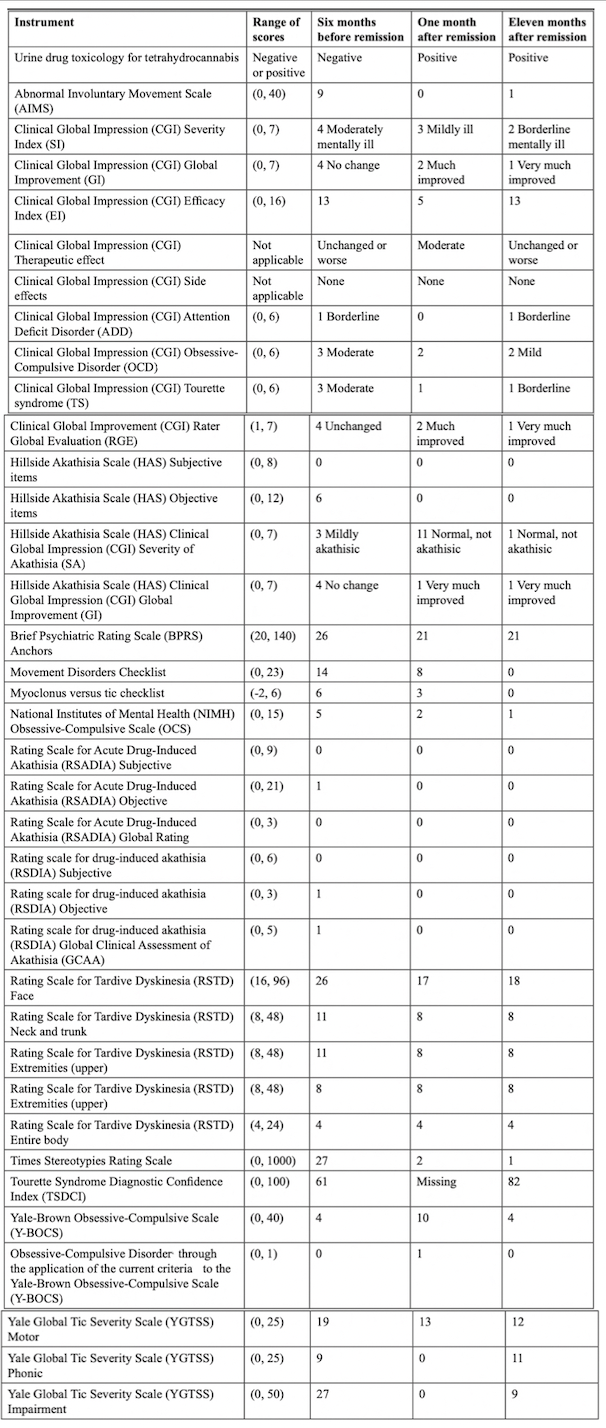Category: Tics/Stereotypies
Objective: To assess the beneficial and adverse effects of heat on a man with Gilles de la Tourette Syndrome (TS)
Background: The effect of heat on people with TS is uncertain. Prior reports have generated conflicting results.
Method: A 36-year-old man with TS presented for a follow-up research examination to report that he is doing well, working 70 hours a week on two jobs.
At 7 years of age, he experienced multiple motor and phonic tics.
At 10 years of age, he experienced episodes of daily emesis preceded by an uncomfortable sensation of regurgitation in his throat when eating solid foods. He was able to resume eating after the emesis.
At 24 years, he was unable to carry bottles for fear they would be damaged due to tics. Then, without the knowledge or approval of his physicians, he deliberately entered a hot bath of 103-104 degrees F for 3-4 hours to induce dehydration. He believed this would favorably alter his dopamine metabolism. After about 2 hours, his tics subsided. After leaving the tub, he had cramps in his arms, legs, and neck. For 2 days after leaving the tub, his urine was pinkish, and he felt weak. He experienced a sustained remission of tics.
At 27 years of age, after a tetanus immunization, he had his worst exacerbation of tics for two weeks. The tics gradually returned to a mild level.
At 29 years of age, he began using Δ9-tetrahydrocannabinol (THC) as an inhaled vapor nightly.
Results: His follow-up examinations 1 month and 11 months after the remission showed market improvements upon his initial evaluation, 6 months before the remission (Table 1. Self-rated instruments, Table 2. Examiner-rated instruments).
He indicated he had not used any drugs, including marijuana, at the time of the assessments. Toxicology may be positive for cannabis 30 days or more after its use.
Conclusion: At 25 years of age, the man with TS underwent heat-induced dehydration and experienced a remission for 2 years.
At 27 years of age, after a tetanus immunization, his symptoms were exacerbated.
Now at 36 years of age, he is not currently taking any medications, but occasionally uses vaporized THC and CBD. He is not vaccinated for COVID-19 but was not severely affected when he contracted the illness.
This case suggests that heat may be a valuable therapeutic intervention for people with TS, but is confounded by the positive toxicology for cannabis at the time of remission. The favorable response could be due to cannabis and not heat exposure or dehydration.
References: Brasic J, Mari Z, Lerner A, Raymont V, Zaidi E, Willis W, Izbudak I, Wong D. Almost full remission of Tourette syndrome. 2015: 38-44. 1st World Congress on Tourette Syndrome and Tic Disorders. London, UK, June 24-26, 2015.
Brašić JR, Mari Z, Lerner A, Raymont V, Zaidi E, Wong DF. Remission of Gilles de la Tourette syndrome. Int J Phys Med Rehabil. 2018;6(3): 472.
Brasic JR, Mari Z, Raymont V, Condouris S, Wong DF. Partial remission of Gilles de la Tourette syndrome. Mov Disord. 2011; 26 (supplement 2): S368.
Durbin A, Brasic JR. Movement assessment of a young man. September 28, 2021. MD-Washington Regional Movement Disorders Video Meeting
Marks IM. Behavioral Psychotherapy: Maudsley Pocket Book of Clinical Management. Bristol: Wright, 1986.
To cite this abstract in AMA style:
A. Durbin, M. Rodgers, J. Brasic, D. Wong. Remission of Gilles de la Tourette Syndrome Following Dehydration [abstract]. Mov Disord. 2022; 37 (suppl 2). https://www.mdsabstracts.org/abstract/remission-of-gilles-de-la-tourette-syndrome-following-dehydration/. Accessed July 18, 2025.« Back to 2022 International Congress
MDS Abstracts - https://www.mdsabstracts.org/abstract/remission-of-gilles-de-la-tourette-syndrome-following-dehydration/


